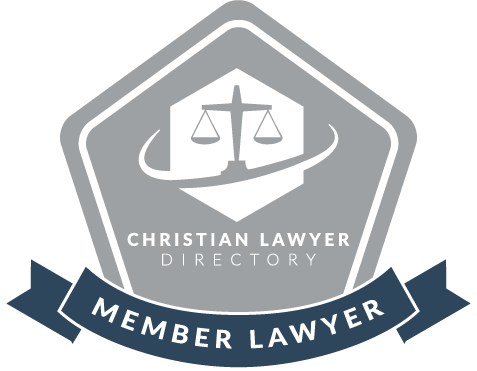Answers to Common Injury Lawsuit Questions
Q: How much is my case worth?
A: The value of your case depends on a lot of factors, including:
- Nature and extent of your injury
- Economic damages (such as lost wages and medical bills)
- How long the injury is expected to last
- Amount of medical treatment you received
- What caused the injury (was the defendant’s behavior especially bad)
- Source of payment available (insurance and assets available)
One of the reasons it is important to hire a talented attorney, is because he can help you to judge the value of your case. A good lawyer will need to review all related medical records and other information to help you determine what your case might be worth.
Q: How long will my case take?
A: It is very difficult to provide a fair answer to this question. The reason is that your lawyer needs to build your case properly based on how your injury is impacting you, how much medical treatment you require, whether you were able to return to work and many other factors. Some attorneys rush cases to settlement without waiting to see how an injury develops. Sometimes it is not clear how badly injured someone is and how long the treatment will take. If you settle before you know the extent of your injuries and find out you will never be able to return to work or that you will require medical care for much longer than expected, you will be unable to reopen the case to get the settlement you would have obtained had you known the reality of your situation. It is much better to wait and see how badly you are hurt so you can get the correct settlement than it is to rush to settle and receive substantially less compensation than you ought to have gotten. Your lawyer will advise you on the right time to settle based on your specific situation.
Q: When should I hire an attorney?
A: Right away. Here’s why.
Q: What are kinds of damages I might be able to recover from an injury?
A: There are a number of kinds of damages available as a result of a car crash or other injury. They include:
- Lost wages
- Medical bills
- Other direct costs (rental cars, hiring of assistance, etc.)
- Pain
- Suffering
- Humiliation
- Distress
- Punitive (if the conduct of the defendant was grossly negligent or intentional)
When you settle your claim, the settlement must include all the types of damages available to you, you cannot seek to recover for different kinds of damages once your case is settled or tried to verdict. As a result, it is extremely important that you discuss the types of damages for which you can recover with your attorney.
Q. What is negligence?
A: Negligence is a requirement in virtually all personal injury cases. There are five elements that must be satisfied in order to sustain a lawsuit against the individual or company that injured you. They are: Duty of Care, Breach, Cause in Fact, Proximate Cause and Damages. For a detailed discussion of negligence, please see our blog post, What is Negligence.
Q: How do I collect my personal injury award?
A: Once you win a lawsuit against a person who caused your injury, if the person against whom you have the judgment has insurance, your lawyer will get a check from the company. Your lawyer will then notify you to come into his office to sign your check. If the person against whom you have the judgment is uninsured, collecting won’t be as easy. You must have the judgment “entered” with the court and then seek to “enforce” the judgment. This is why, if you have a serious injury, your lawyer will seek to settle for the maximum insurance available but not seek to get a greater amount from the person who harmed you. If the defendant has no money, there is no point in pursuing him for a larger settlement. On the other hand, if the person has substantial assets, it might well be worth seeking a greater amount and then fighting for your money if the defendant refuses to pay.
Q: Can I ask my lawyer for a copy of the personal injury settlement check?
A: Yes, and you should. As a client you have an absolute right to see a copy of the settlement check, as well as to review a copy of the settlement breakdown sheet before the check is deposited. Ask your lawyer to provide you with a copy of the actual settlement check forwarded to him by the insurance company, as well as a copy of all checks written by him (which should total the full amount of the settlement). An ethical lawyer will happily provide you with this breakdown.
Q: What is a contingency fee?
A: A contingency fee is one in which you only pay if your lawyer wins your case. Of course, your primary focus should be on the skill and experience of your attorney. An attorney who lacks experience is not as likely to be successful. But, you also want to make certain that you are being charged a fair fee based on the complexity of your particular case.
Q: What happens when my lawyer is offered a settlement?
A: Your lawyer should always communicate with you about any settlement offers. He should discuss these offers with you and explain his reasoning behind why he thinks you should or should not accept them.
Q: Can a health care insurer be repaid from a personal injury settlement?
A: Yes, it’s quite common. Most health insurance policies now have language that allows the insurance company to be repaid for the amount paid out on medical bills if the insured person gets a personal injury settlement.
Q: Can I gain access to my child’s personal injury settlement money?
A: When a child is injured and successfully sues, the money is placed in a special bank account until the child is 18. Money can be withdrawn with approval from a court. In order to withdraw money, you have to show the court that the funds will directly benefit the child.
Q: What is the statute of limitations?
A: This is the time period during which you have to sue after your injury. In most states, the time period is limited to two years. After that time period has passed, you completely lose your right to file a claim against the defendant.
 Free Consultation
Free Consultation












